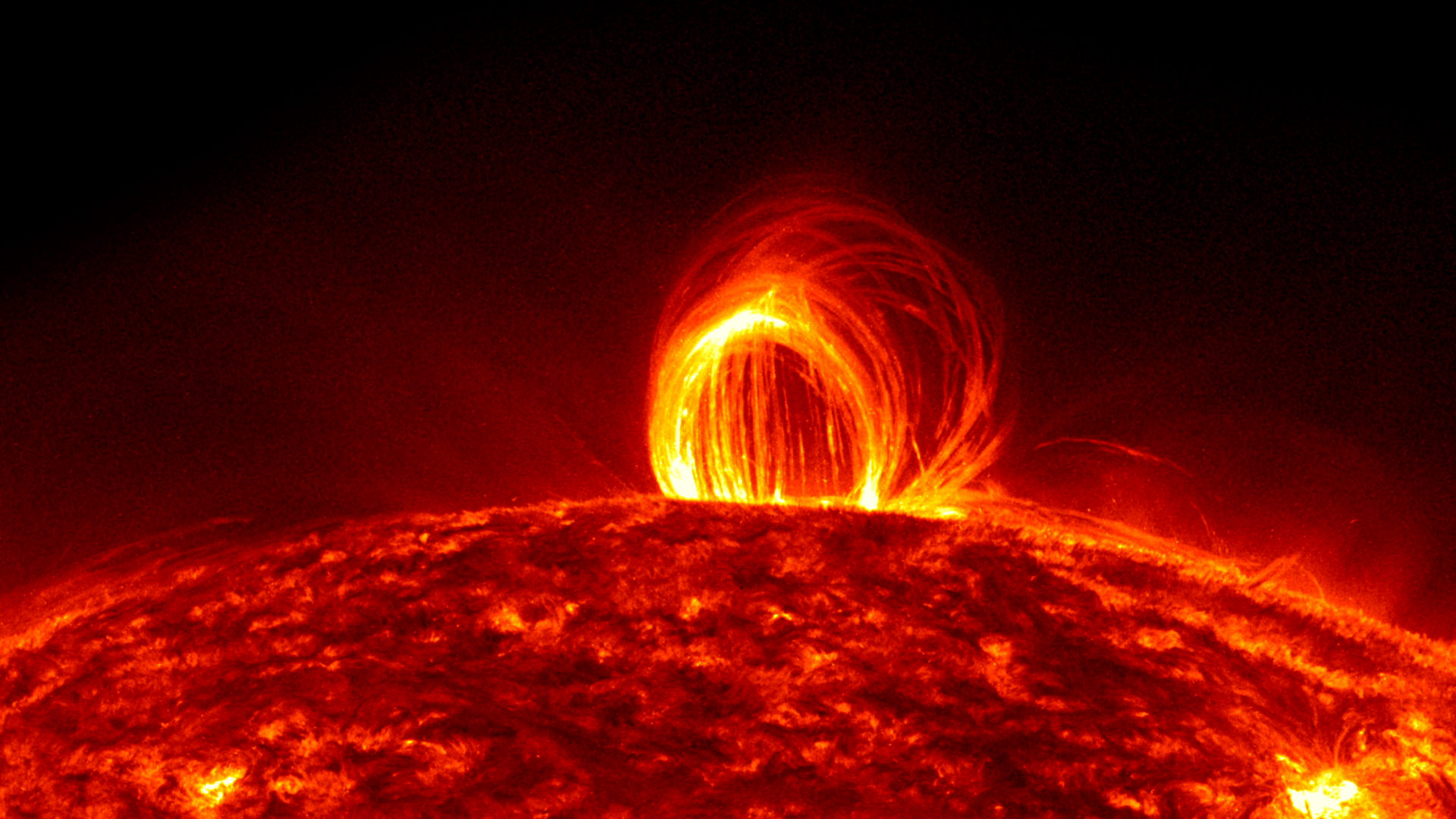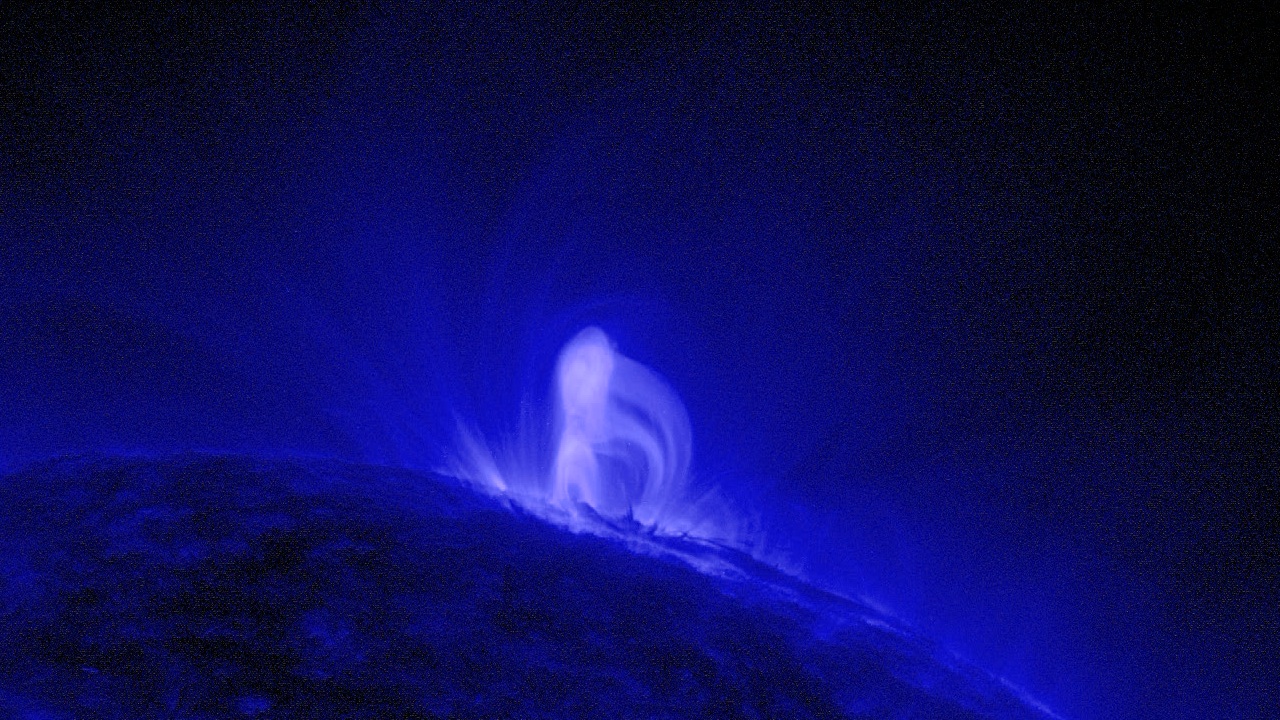AR1520's Parting Shot: July 19, 2012 M7.7 Flare
The sun emitted a moderate solar flare on July 19, 2012, beginning at 1:13 AM EDT and peaking at 1:58 AM. Solar flares are gigantic bursts of radiation that cannot pass through Earth's atmosphere to harm humans on the ground, however, when strong enough, they can disrupt the atmosphere and degrade GPS and communications signals.
The flare is classified as an M7.7 flare. This means it is weaker than the largest flares, which are classified as X-class. M-class flares can cause brief radio communications blackouts at the poles.
Increased numbers of flares are currently quite common, since the sun's standard 11-year activity cycle is ramping up toward solar maximum, which is expected in 2013. It is quite normal for there to be many flares a day during the sun's peak activity.
Video showing the flare in 304 and 335 angstrom light. Still showing the flare in 304, 131 and 335 angstrom light.

Cropped image of the flare in 304 angstrom ultraviolet

Full disk 4k image of the flare in 304 angstrom ultraviolet

Cropped image of the flare in 131 angstrom ultraviolet

Full disk 4k image of the flare in 131 angstrom ultraviolet

Full disk 4k image of the flare in 335 angstrom ultraviolet
Credits
Please give credit for this item to:
NASA/Goddard Space Flight Center
-
Video editor
- Scott Wiessinger (USRA)
-
Producer
- Scott Wiessinger (USRA)
-
Writer
- Karen Fox (ADNET Systems, Inc.)
Release date
This page was originally published on Thursday, July 19, 2012.
This page was last updated on Wednesday, May 3, 2023 at 1:52 PM EDT.
Missions
This page is related to the following missions:Series
This page can be found in the following series:Tapes
The media on this page originally appeared on the following tapes:-
Heliophysics Breaking News 2012 collection
(ID: 2012048)
Thursday, November 1, 2012 at 4:00AM
Produced by - Robert Crippen (NASA)


